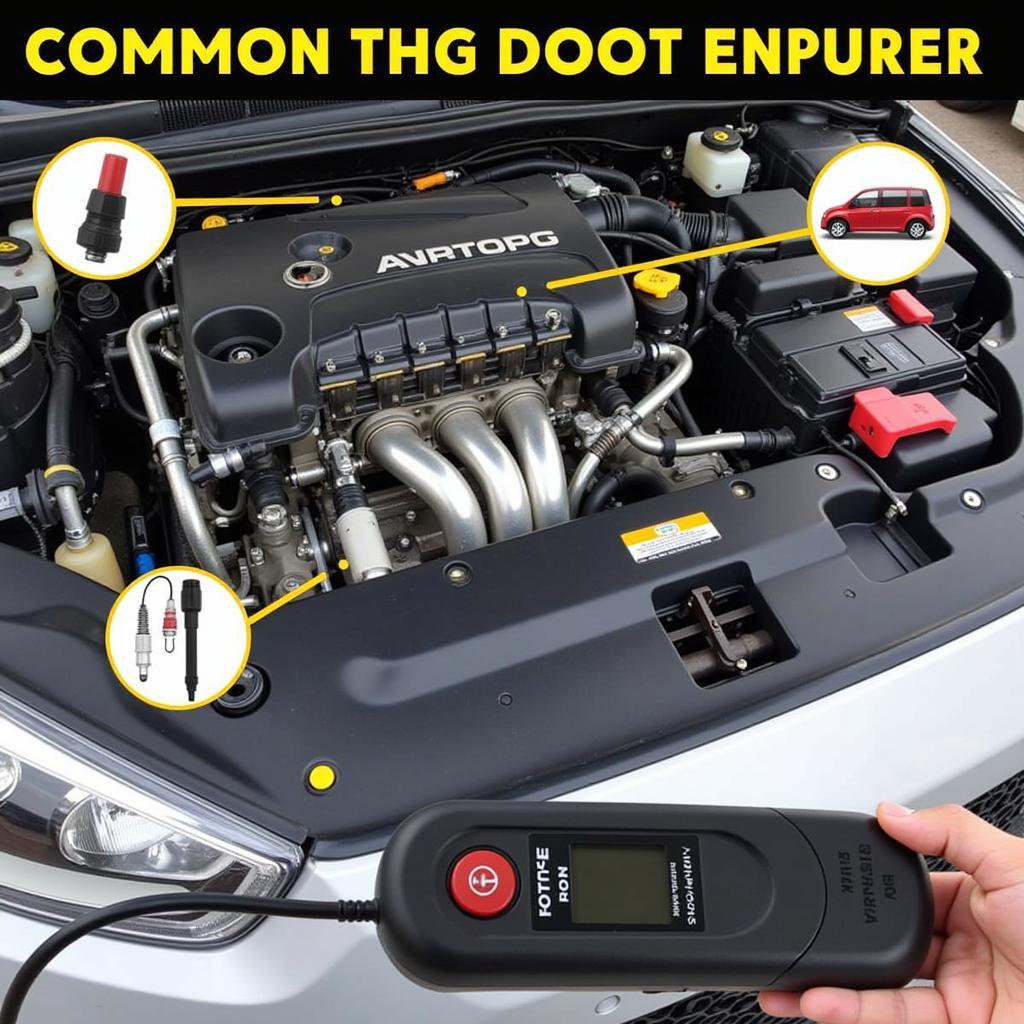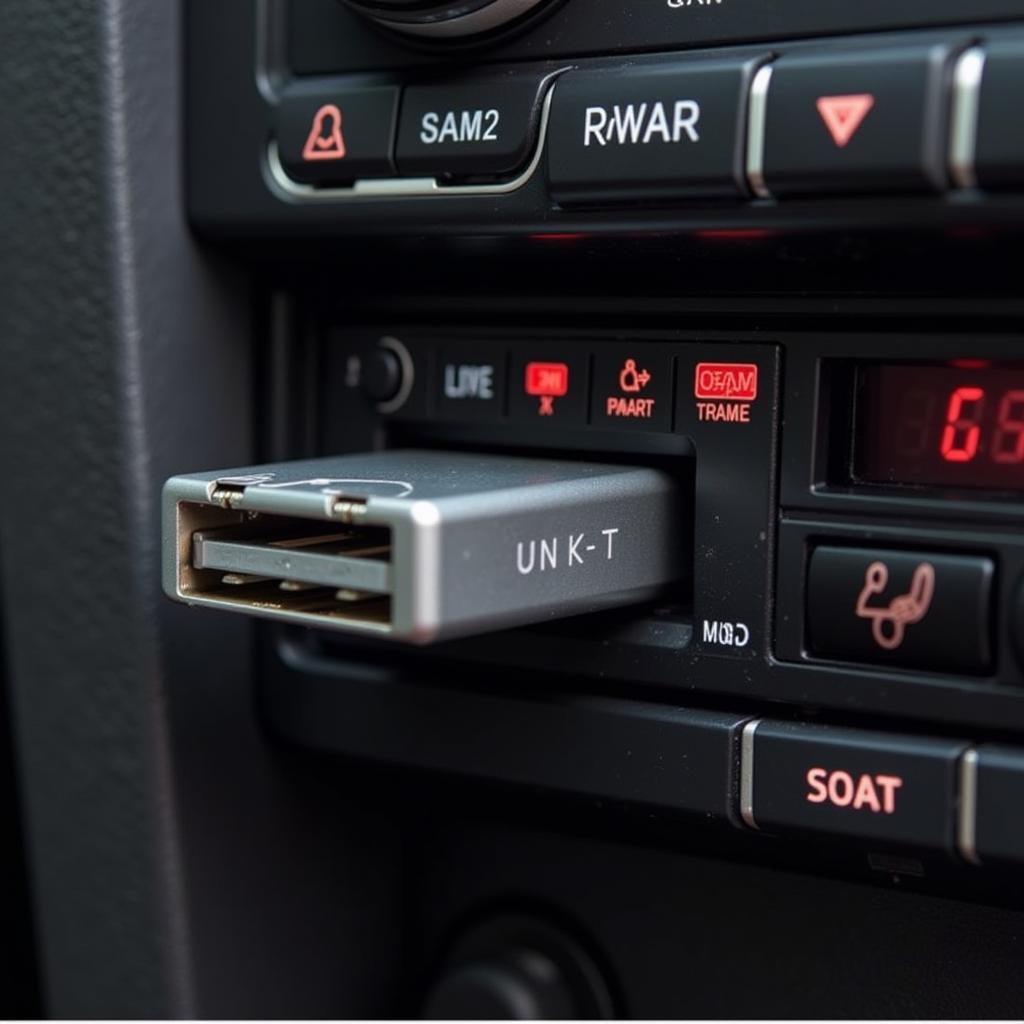Car radios are an essential part of the driving experience, providing entertainment, navigation, and even safety features. When your car radio stops working, it can be frustrating and inconvenient. If you’re facing this issue, you’re not alone. Many car owners experience problems with their car radios at some point.
This article will guide you through common car radio issues, troubleshooting steps, and tips for getting your radio fixed. We’ll cover everything from simple fixes you can do yourself to when it’s time to call a professional.
Identifying the Problem
The first step in fixing your car radio is identifying the source of the problem. Ask yourself the following questions:
- Is the radio completely dead? If you can’t turn it on at all, the issue might be with the power supply.
- Is there sound but no reception? If you hear static or distorted sound, the antenna or the radio itself may be faulty.
- Are certain features not working? If only specific functions like the CD player or Bluetooth are broken, the issue may be isolated to that component.
Common Car Radio Issues
Here are some of the most frequent problems you might encounter with your car radio:
1. Power Problems
Symptoms: Radio won’t turn on, or it turns on and off intermittently.
Possible Causes:
- Fuses: A blown fuse in the radio’s power circuit can prevent it from receiving power.
- Loose Connections: Wires connecting the radio to the power source may be loose or corroded.
- Battery Issues: A weak or dying battery can impact the radio’s power supply.
2. Antenna Issues
Symptoms: No reception, poor reception, or static.
Possible Causes:
- Broken Antenna: The antenna may be bent, damaged, or disconnected.
- Loose Connections: The antenna wire may be loose at the connection point.
- Interference: External factors like tall buildings or other electronic devices can interfere with radio signals.
3. Radio Malfunction
Symptoms: Distorted sound, crackling, skipping, or complete failure.
Possible Causes:
- Damaged Components: Internal components like speakers, amplifiers, or the radio receiver itself may be faulty.
- Software Issues: Some car radios have software that can become corrupted or outdated, leading to malfunctions.
Troubleshooting Steps
Before taking your car to a mechanic, try these troubleshooting steps yourself:
1. Check the Fuses
- Locate the fuse box: Consult your owner’s manual to find the fuse box location in your car.
- Identify the radio fuse: The fuse box diagram will indicate the fuse responsible for the radio’s power.
- Inspect the fuse: Look for a broken or melted fuse.
- Replace the fuse: If the fuse is blown, replace it with a new fuse of the same amperage.
2. Check the Connections
- Access the radio: You may need to remove the dashboard trim to access the radio.
- Inspect the wiring: Look for any loose, broken, or corroded wires.
- Reconnect the wires: If you find loose connections, reconnect them securely.
3. Check the Antenna
- Inspect the antenna: Look for any visible damage or bending.
- Try a different antenna: If you have a spare antenna, try using it to rule out an antenna problem.
- Reconnect the antenna wire: Make sure the antenna wire is securely connected to the radio.
When to Call a Professional
If you’ve tried troubleshooting the radio yourself and it’s still not working, it’s time to call a professional car radio repair technician. Here are some signs it’s time to seek expert help:
- You’re not comfortable working on electrical components: If you’re not experienced with electrical systems, it’s safer to leave repairs to professionals.
- The problem seems complex: If the radio issue is not easily identifiable or solvable, it’s best to seek professional advice.
- The radio is damaged or has water damage: A damaged radio requires specialized repair techniques.
Tips for Preventing Future Problems
- Keep your radio clean: Dust and dirt can accumulate in the radio, causing malfunctions.
- Avoid extreme temperatures: Heat and cold can damage electronic components.
- Protect the radio from water damage: Avoid exposing the radio to water or moisture.
- Don’t overload the radio: Excessive volume can strain the speakers and other components.
Finding a Car Radio Repair Professional
When looking for a car radio repair professional, consider these factors:
- Experience: Look for a technician with experience repairing car radios.
- Reputation: Check online reviews and ask for referrals.
- Warranty: Ask about the warranty on repairs.
- Price: Compare prices from different technicians.
Conclusion
A broken car radio can be a nuisance, but with the right troubleshooting steps and the help of a professional if needed, you can get your radio fixed quickly. Remember to take preventive measures to keep your radio in good condition and extend its lifespan.
If you need assistance with your car radio, how to fix a broken car radio antenna, or any other car-related issues, contact Autotippro. We’re a team of experienced automotive professionals dedicated to helping you keep your car running smoothly.
Phone: +1 (641) 206-8880
Address: 500 N St Mary’s St, San Antonio, TX 78205, United States
FAQ
Q: What should I do if my car radio only turns on intermittently?
A: Intermittent power issues are usually caused by a loose connection or a faulty fuse. Check the wiring and fuses in the radio’s power circuit.
Q: Can I fix a car radio antenna myself?
A: You can try to fix a bent or broken antenna, but if the antenna wire is damaged or disconnected, it’s best to seek professional help.
Q: What is the most common reason for a car radio to stop working?
A: A blown fuse is one of the most common reasons for a car radio to completely stop working.
Q: Why does my car radio have no sound?
A: No sound can be caused by a blown fuse, damaged speakers, a faulty amplifier, or a problem with the radio receiver itself.
Q: How can I prevent my car radio from getting damaged?
A: Keeping the radio clean, avoiding extreme temperatures, protecting it from water damage, and not overloading it can all help to prevent damage.






Leave a Reply